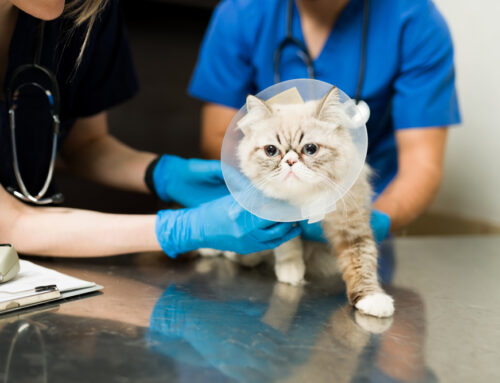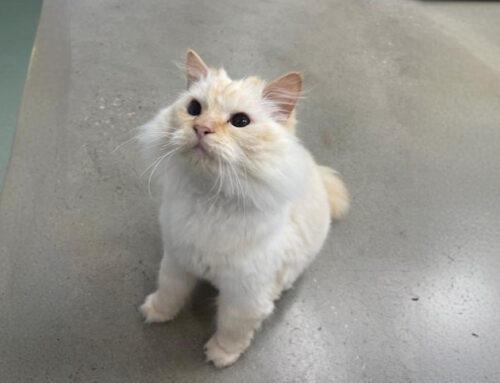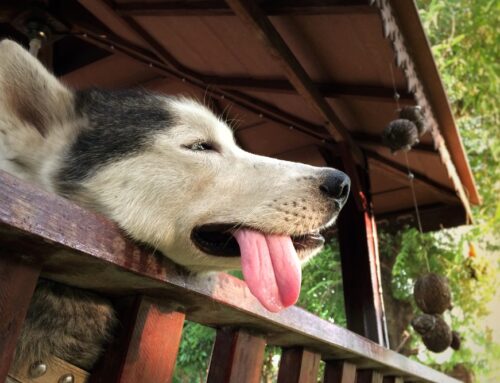The holidays are a time to celebrate our relationships with loved ones, including our four-legged friends. We want to include them in gift exchanges, allow them to partake in holiday meals, and shower them with extra treats for being the best boys and girls. However, treating pets with the wrong foods can be disastrous and ruin a perfectly good holiday. The Stack Veterinary Hospital team shares do’s and don’ts surrounding holiday food and treats, so you can avoid an impromptu veterinary visit.
DO offer pets treats in small quantities
Treats should comprise less than 10% of your pet’s diet, and the holidays are no exception. When pets eat too many treats, they will eat less regular food—which is designed to offer complete and balanced nutrition—and create potential nutrient deficiencies. Feeding treats in small quantities helps to prevent stomach upset, reduce caloric intake, and ensure your furry pal eats a balanced diet. Feeding small treat quantities can also help battle winter weight gain, which is a problem for humans and pets during the holiday season.
DON’T share toxic table foods with pets
You likely have a strong urge to share delicious holiday foods with your pet, but you must ensure foods you offer as treats are safe. Several common ingredients are toxic to pets and can cause serious illness or death. Avoid offering these foods as pet treats:
- Xylitol — This sugar alcohol, used in baked goods and candies, confuses canine bodies and can cause a massive insulin release followed by a blood sugar crash, as well as liver damage.
- Chocolate — Compounds in chocolate stimulate the nervous system and can cause seizures, heart problems, high body temperature, and death, in severe cases.
- Garlic and onions — Garlic and onions damage red blood cells, which the body then destroys, causing anemia and impaired oxygen-carrying capabilities.
- Raisins — Raisins cause acute kidney failure in dogs, but the failure may be delayed hours to days.
- Macadamia nuts — Macadamia nuts contain unknown compounds that cause vomiting, diarrhea, and hind limb weakness.
If your pet gets hold of the fruitcake or wolfs down a whole batch of brownies, contact the ASPCA Animal Poison Control Center or the Pet Poison Helpline for advice and to know if your pet needs immediate veterinary care.
DO make pets a special holiday meal
You can make holiday food and treats safer for pets by cooking small batches of similar food specifically for them. Many festive foods are safe for pets to eat, including:
- Skinless and boneless lean meats
- Sweet potatoes
- Carrots
- Pumpkin and squash
- Bell peppers
- Store-bought mushrooms
- Berries
- Green beans
Always cook food intended for pet consumption with no butter, oil, or spices, which could trigger stomach upset. Most meats and vegetables can be boiled or steamed and pets will love the flavor without any extra seasonings.
DON’T feed pets cooked meat bones
Cooked bones from poultry or ham are fragile and easily splinter when chewed. A bone shard can block your dog’s stomach or intestinal tract, or perforate the tissues and cause a serious internal infection. Instead of bones from the meal, offer your pet a digestible dental chew, rawhide alternative, stuffed Kong toy, or Nylabone to keep them busy and satisfied.
DO provide pets with non-food rewards
Treats aren’t the only way you can reward pets and share the holiday spirit. Quality time is invaluable—and arguably the best gift you can offer your pet during an otherwise hectic time of year. Consider non-food rewards your pet normally enjoys, which may include:
- Brushing or petting
- Cuddling
- Walking
- Playtime
- Special toys
- Visiting friends
DON’T give pets fatty table scraps or meat trimmings

Fatty foods can trigger a condition called pancreatitis in dogs, especially those who normally eat a low- or moderate-fat diet or have underlying metabolic issues that interfere with fat metabolism (e.g., diabetes, Cushing’s, high cholesterol). Pancreatitis causes vomiting, abdominal pain, poor appetite, lethargy, and fever in the initial stages, and affected pets typically require hospitalized inpatient care. In severe cases, widespread inflammation can cause organ damage or death.
Treats are essential to the relationship that many pets and pet owners share, but they must be provided responsibly. The Stack Veterinary Hospital team recommends that you keep your pet’s treats to less than 10% of total daily caloric intake, and ensure that you choose treats according to your pet’s nutritional and medical needs. Contact us to schedule a nutrition consultation or wellness checkup, or to learn more about safe versus unsafe pet foods







Leave A Comment